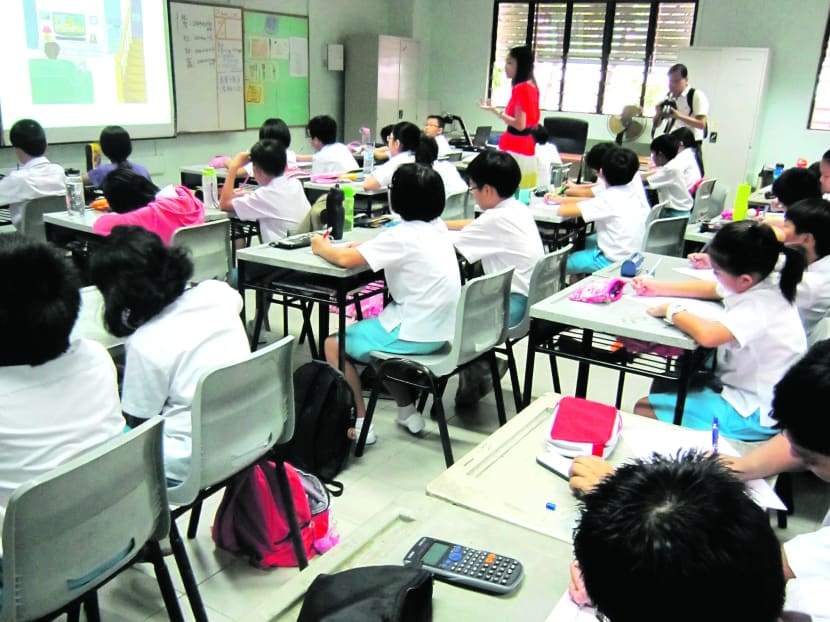PSLE scores to be scrapped, students to be given grades
SINGAPORE — The current scoring system of the Primary School Leaving Examination (PSLE) makes a “distinction which is meaningless and too fine”, Prime Minister Lee Hsien Loong said yesterday, as he announced that 12-year-olds will in future no longer be given aggregate scores for the national examination. Instead, students could be given letter grades and placed in “wider bands” like in the O- and A-Level examinations.
SINGAPORE — The current scoring system of the Primary School Leaving Examination (PSLE) makes a “distinction which is meaningless and too fine”, Prime Minister Lee Hsien Loong said yesterday, as he announced that 12-year-olds will in future no longer be given aggregate scores for the national examination. Instead, students could be given letter grades and placed in “wider bands” like in the O- and A-Level examinations.
And when a child begins his secondary school education, he can also look forward to greater flexibility in the system which, for instance, allows him to take a subject at a higher level — regardless of what stream he is in — if he did well in it in PSLE, as part of a slew of policy changes in education.
The high-stakes nature of the PSLE has often been cited by parents and observers as a major contributing factor to the stress in the education system.
Last year, the Ministry of Education (MOE) scrapped its practice of naming the top PSLE scorers of each cohort.
But in his National Day Rally speech, Mr Lee pointed out: “Who is going to grow up abler, more committed, more capable, better contributor to society at the age of 12, you can guess, you cannot tell. You certainly cannot tell based on one-point difference.” The changes to the PSLE scoring system, which will only be implemented “several years” from now, will reduce “excessive competition to chase that last point”, he said.
With the change, there will be “space to educate and develop students more holistically”, he said. While some have called for the PSLE to be done away with entirely, Mr Lee stressed: “I think we should make some careful changes to the PSLE system.”
Mr Lee noted that many people see the PSLE as not just a report card of the student’s performance in primary school but as something that determines a child’s future. “Because of the way parents think, there is tremendous stress when it comes to the PSLE and the whole family takes the examination,” he said, noting that some parents quit their jobs to help their child prepare for the PSLE.
On the move to create flexibility in secondary schools for students to tailor their education to their abilities and development, Mr Lee said the aim is to have a system which fits different profiles of students.
For instance, a Secondary 1 Normal (Academic) student can take O-Level mathematics classes if he did well in the subject in PSLE. Currently, only upper secondary students can take subjects across different streams.
“You can learn each subject at a pace appropriate to you, you can build on your strengths, build up your confidence your pride, you can go further and fufil your potential,” Mr Lee said.
While he reiterated that “every school is a good school”, Mr Lee said he accepts that parents and students will “always carefully choose which schools they go to”. “I think it is good that parents compare between schools, because it puts pressure on schools to know parents are watching, and it makes a difference how they perform but it is important that parents compare and contrast choose on the right basis,” said Mr Lee, citing aspects such as character development.
He added: “If we have a completely flat and featureless system, every school is exactly the same as every other school, no difference, we will have not excellence but mediocrity.”
Writing on his Facebook page yesterday, Education Minister Heng Swee Keat reiterated that the changes to PSLE scoring will “take some years to implement and will not affect the immediate batches of students”. Adding that PSLE scoring is tied to the secondary school admission process, it will take the MOE “a few years” to prepare for the changes.
On the policy changes in the education system, Mr Heng said that the MOE will be working with educators and parents, among others. MOE will release further details in due course.







